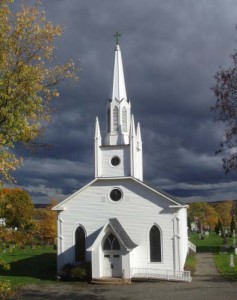The following is an excerpt from a teaching by Jetsunma Ahkon Lhamo called “Marrying a Spiritual Life with Western Culture”
How does our culture affect our sense of personal practice, our sense of taking refuge? How does it connect with all of that? We find ourselves in a difficult situation. We are really limited, and we can’t see where the limitation is coming from. We don’t know how deep we can quest or search, and how profoundly we can make the connection between the external environment, between the ordinary view, and our deepest, most intimate spiritual nature. We feel somewhat limited in knowing how we can make that connection.
Let’s look again at some very important factors. Think of how we follow religion in our country. For the most part, here in the West, we believe religion is one of the many things that you should have in order to live a moral life. It’s part of the palette of a moral life, but it may not be the basis of a moral life. This is kind of interesting, isn’t it? Many of the people who are deeply religious, according to our society’s capacity, have adapted their religion from their upbringing. Somehow they got the message that in order to be part of that big, successful, materialistic picture you have to maintain a certain status quo concerning moral, ethical and spiritual issues. It isn’t your heart. No, you wouldn’t want that, because that’s that flaky stuff. It’s really hard to have all that you’re supposed to have if this religious thing is so in your heart that it is your heart, that it speaks to you every minute, that all of your decisions are based on what you know to be true spiritually. There’s not much chance that you’re going to be the big accumulator your parents hoped you would be if you go like that. So religion is tamed. It becomes insipid. It becomes a thing that we do as part of the whole picture of who we are, but it does not really nourish us in the way that we want it to. And we end up blaming the religion or the minister or the teacher or the prayers or something. In America, our religious spiritual picture is not empowered. It is not deepened, not in the way that would set us on fire. I don’t mean this in a fanatical way. I mean this in a way where we are never very far from what feels like spiritual truth, from what we know to be good, from what we know to be deep and meaningful. It is very difficult for us to maintain that kind of spirituality in this culture.
We are told, for instance, that in order to be a good person you have to do a certain amount of church-going. That church-going idea is deadly. It’s really the antithesis of a spiritual path. And I find that here as well. Our Sangha also plays church. Whenever I see one of us do church-going, I don’t know what to do. That church-going thing drives me nuts! When we come here, on the proper days—Sunday, during retreats and maybe for a midweek class—we think, “Well I’m here. It’s Sunday and I’m fulfilling my spiritual obligation.” We have that church expression: We look all spiritual and fulfilled and we say the nice things. Going to church in that way is deadening and disempowering. It’s a very destructive way to approach our spiritual life. Our spiritual life is something that requires no church. It requires no temple. It is an ongoing, internal, profound experience to which we have to marry. We shouldn’t marry simply because we’ve come of age, which many of us do, but because we are truly wed in our hearts and our minds with a deeper kind of friendship and understanding regarding our spiritual path than we’ve ever known before.
Copyright © Jetsunma Ahkon Lhamo. All rights reserved











